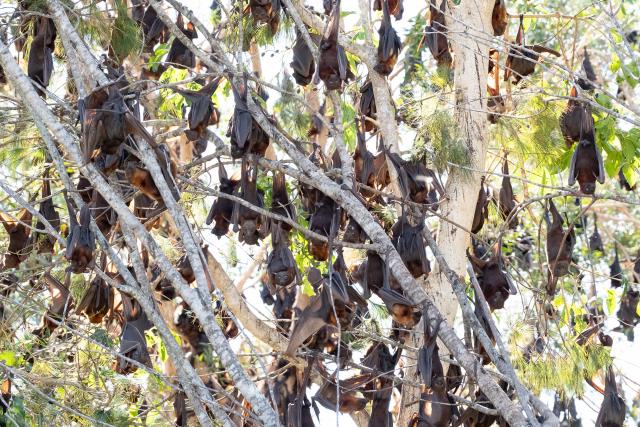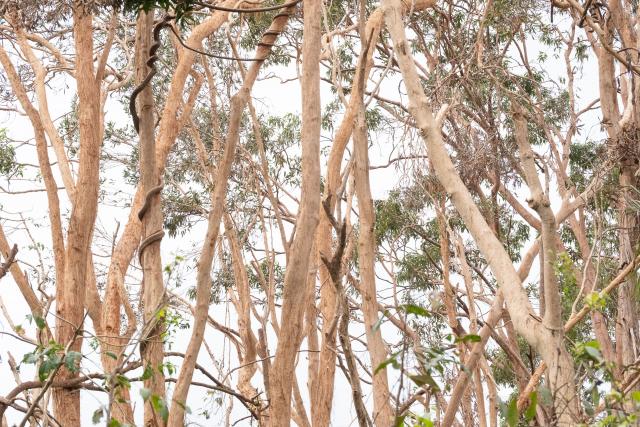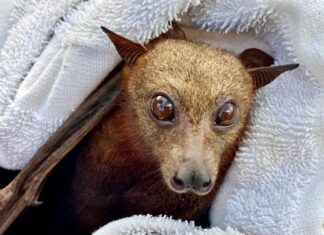A large little red flying fox colony flew its roost in Waratah Reserve, Tewantin, last month after a stay of about six months which drove residents to despair, and Noosa Council is now putting together a roost management plan in case of future influxes.
Council’s acting environmental services manager Rebecca Britton said residents had reported a significant decrease in little red flying-fox numbers in Waratah Reserve, with no flying-foxes observed at the roost since Tuesday 21 March.
“Our contractors carried out tree trimming in Waratah Reserve at night on March 20 and 21 to create a buffer between the flying-foxes and private properties,“ she said.
“Due to the fewer number of bats, we were able to complete the remainder of the work during the day.
“The management plan will provide clear direction to residents about how council plans to manage the reserve into the future, as well as identify how both council and residents can best manage any potential future influxes of flying-foxes,“ she said.
Ms Britton said council had also sent an independent arborist out to Waratah Reserve to identify any compromised branches or trees that may pose a public safety risk with work to remove the compromised branches and trees scheduled for early to mid-April.
She said council would also carry out cleaning and repairs to damaged boardwalks and railings around Waratah Reserve and had assisted households directly adjacent to Waratah Reserve through our Flying-fox Subsidy Program.
“We are one of the only councils in south-east Queensland to offer a Flying-fox Subsidy Program to help eligible residents reduce the impacts associated with flying-fox roosts,“ she said.
“Council thanks residents adjacent to Waratah Reserve for their patience and willingness to work with us to manage the impacts of the roost.
“We also appreciate the positive feedback several residents have expressed to Council staff and our contractors.“
Waratah Reserve will remain closed to the public until all arborist works are completed.










